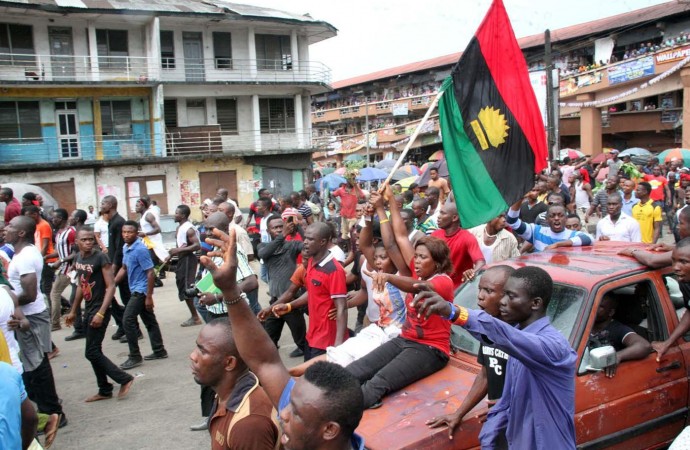
When I think of May 30, especially looking back as it relates to the ominous year 1967 and the severed Biafran aspiration, I remember with nostalgic sense the circumstances that ultimately triggered what some might refer to as the avoidable Nigeria-Biafra war.
But it would be worthy for those as think it to be avoidable, to make scrutiny, as to reconsider their stand, that the accumulated events that finally led to the lid being blown off were evidently nasty situations that made the war very much inevitable.
The preliminary events of the Civil War were very much gory, horrible, and dastardly; and these were the view that May 30 brings to mind. The slaughter of over 300 Igbo soldiers, the massacre of over 10,000 Igbos in the north and the full-blown brutality, which the Nigerian government – sophisticated and armed – meted out to a defenseless and traumatized people, mostly children and women.
The bombardment, the blockades, and the starvation, which were all seen as ‘legitimate weapons of warfare,’ reflect in heavy flashlights today. The people heavily beaten and stigmatized had no choice other than to resort to self-determination in realization of what would be a safe haven for them, where they and what belonged to them would be protected from the swarming blades of annihilation and possible genocide.
Quoting from Chinua Achebe’s There Was A Country: “On May 30, 1967, Ojukwu, citing a variety of malevolent acts directed at the mainly Igbo Easterners, proclaimed the independence of the Republic of Biafra…”
It would be crucial to note that the impetus to this strategic and defining action of Ojukwu that would later reshape Nigeria’s history forever was given by the full backing of the Eastern House Constituent Assembly.
Finding in Achebe’s literature a point, the reason for this eventual resort was not farfetched: “A government that failed to safeguard the lives of its citizens has no claim to their allegiance and must be ready to accept that the victims deserve the right to seek their safety in any other ways.”
The Republic was formed and the war eventually broke out with senseless brutality and the height of inhumanity that left with them carnages of high propensity. The war left over 3 million killed, and many more died under the throes of kwashiorkor, marasmus and starvation; and with economic means of leveled down, a land crippled and squelching with oozing epidemic and poverty.
For the Biafran people, bruised and brutalized, their only offense that drew the heavy offensive apparently happened to be their desire for safety; for a place they can really call home, helpful of their visions, or maybe so.
To the defeated and vanquished Biafrans, with the subjugation which has continued to thrive all along the years, albeit in reinforced zest, more than four decades after they’ve been literally stripped of life and hope and after they’ve been assured of not been vanquished, the coming again of May 30, 2017, 50 years after, resurges the feeling of defeat, of stigma which they roundly fought against with their blood.
Aside from being a day of fear of the heavy bloodshed and of lives lost in the most cruel and horrific forms of war, it is a day of a deep, silent, unsettling rue; a rue over what was the failure of the time to have been free and away from the growing resentment and continuous suffocation of the Igbo grime and dreams.
The situation of the Igbos, the champions of the Biafra struggle, in present Nigeria is such that every May 30 brings the nostalgic feeling of eeriness, of anger and of detachment; it brings forth a new desire for self-determination, giving credence to the sprawling continuous agitation for a Biafran state.
Today, within our nation, it seems that the events of the day, to wit, the large-scale polarization of the polity, the increasing heinous attacks and wanton killings by the Fulani herdsmen, the rise in insecurity fanned by ethno-religious misunderstanding and the queasy sense of marginalization with attendant calls for restructuring and breakup, just make that decision of May 30, 1967 robustly justified.
Ahanonu Kingsley writes from Owerri. You can follow him on Twitter @kings_emz.
END

Be the first to comment